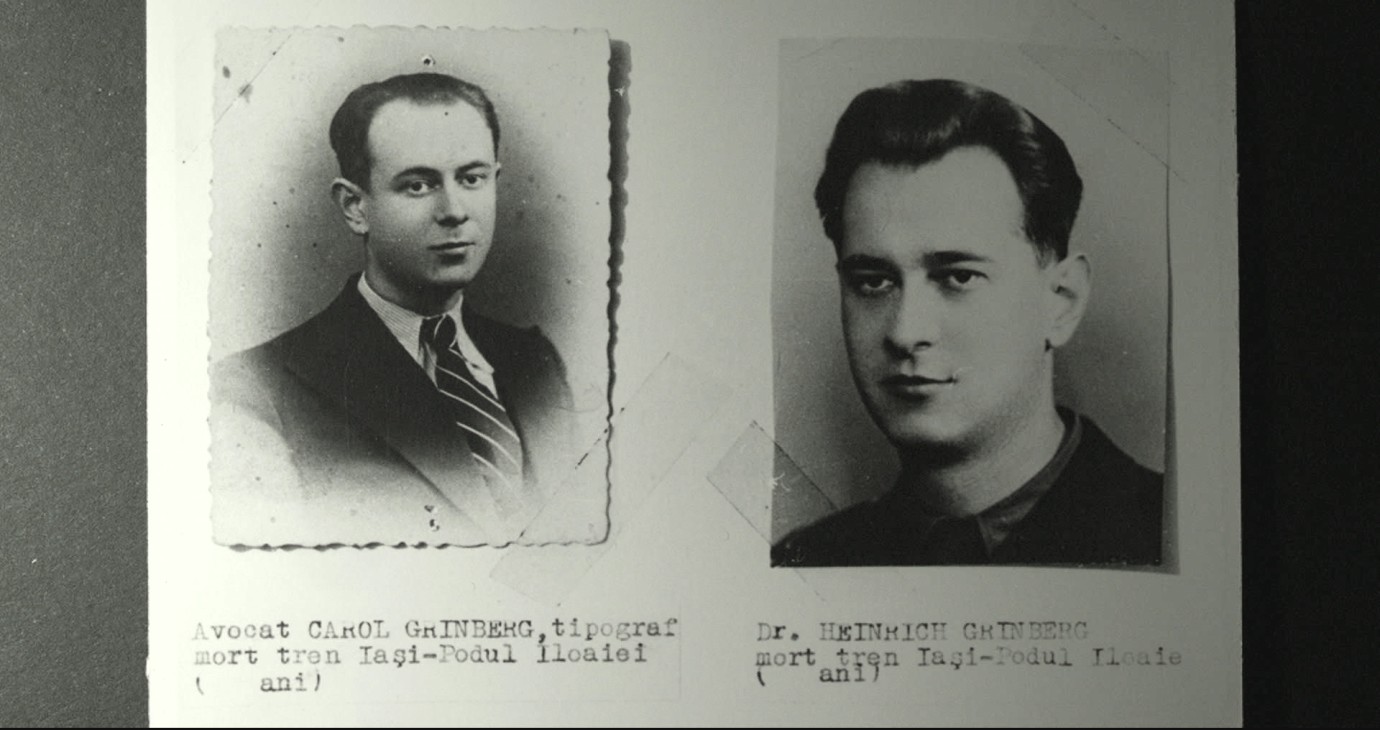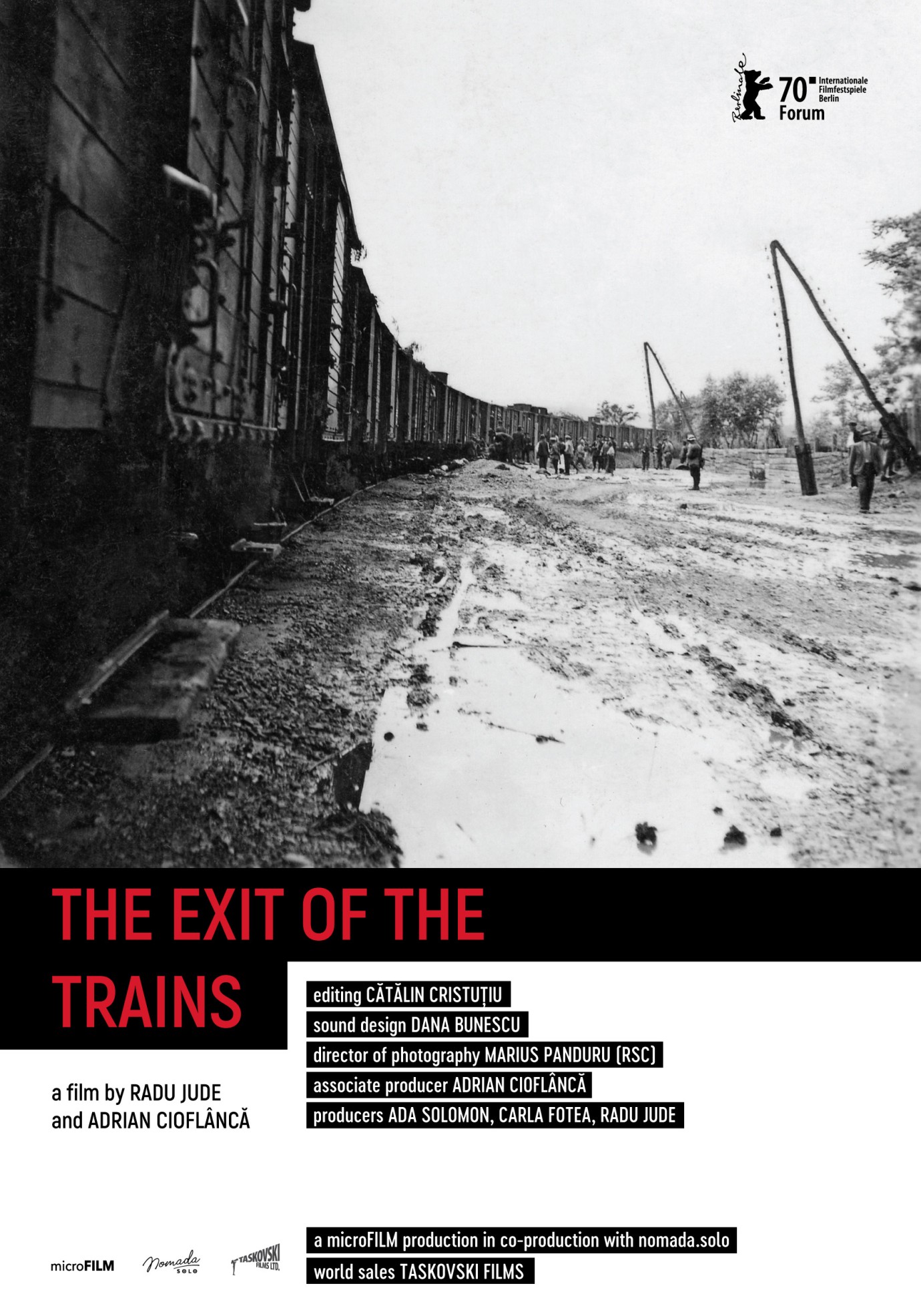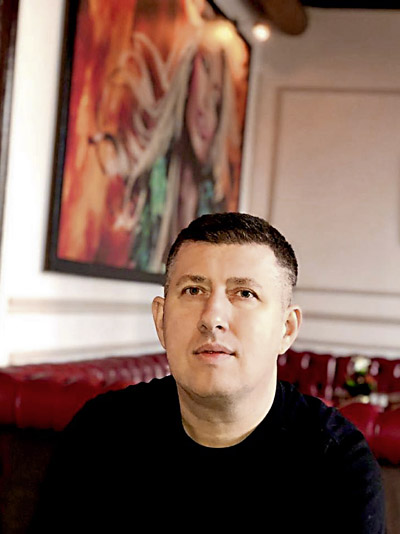Ieşirea trenurilor din gară
The Exit of the Trains

Ieşirea trenurilor din gară | The Exit of the Trains by Radu Jude, Adrian Cioflâncă
ROU 2020, Forum
© microFilm

Film poster
Ieşirea trenurilor din gară | The Exit of the Trains by Radu Jude, Adrian Cioflâncă
ROU 2020, Forum
Crew
| Written and Directed by | Radu Jude, Adrian Cioflâncă |
| Cinematography | Marius Panduru |
| Editing | Cătălin Cristuțiu |
| Sound Design | Dana Bunescu |
| Sound | Dana Bunescu |
| Assistant Director | Vasile Todinca |
| Producers | Ada Solomon, Carla Fotea, Radu Jude |
| Co-Production | nomada.solo Bukarest, Rumänien |
World sales
Taskovski Films
Produced by
microFilm
Radu Jude

Born in Bucharest, Romania in 1977. After taking a film degree at the city’s Media University, he first worked as an assistant director before making his debut short film in 2006. His feature debut The Happiest Girl in the World, which screened in the 2009 Forum, received worldwide attention. He won the Silver Bear for Best Director with Aferim! at the 2015 Berlinale and his films Uppercase Print and The Exit of the Trains both premiered in the 2020 Forum. In 2021, he won the Golden Bear with Bad Luck Banging or Loony Porn while two of his short films screened at Locarno and Venice.
Filmography
2006 Lampa cu caciula (The Tube with a Hat); short film 2007 Dimineața (In the Morning); short film 2009 Cea mai fericită fată din lume (The Happiest Girl in the World) 2011 Film pentru prieteni (A Film for Friends) 2012 Toată lumea din familia noastra (Everybody in Our Family) 2015 Aferim! 2016 Inimi cicatrizate (Scarred Hearts) 2017 Țara moartă (The Dead Nation) 2018 Îmi este indiferent dacă în istorie vom intra ca barbari (I Do Not Care If We Go Down in History as Barbarians) 2020 Uppercase Print · Ieşirea trenurilor din gară (The Exit of the Trains); co-director: Adrian Cioflâncă 2021 Babardeală cu bucluc sau porno balamuc (Bad Luck Banging or Loony Porn) · Caricaturana; short film · Plastic Semiotic (Semiotic Plastic); short film 2022 Amintiri de pe Frontul de Est (Memories from the Eastern Front); short film, co-Director: Adrian Cioflâncă
Bio- & filmography as of Berlinale 2022
Adrian Cioflâncă

Born in Piatra Neamt, Romania in 1974. His work as a historian focuses chiefly on the Holocaust, communism and political violence. He is director of the Wilhelm Filderman Center for the Study of Jewish History in Romania and has been a consultant on several films and theatre plays. His film The Exit of the Trains had its world premiere at the 2020 Berlinale. Like his previous work, he also made Amintiri de pe Frontul de Est in cooperation with the Romanian director Radu Jude.
Filmography
2020 Ieșirea trenurilor din gară (The Exit of the Trains); co-director: Radu Jude 2022 Amintiri de pe Frontul de Est (Memories from the Eastern Front); short film, co-director: Radu Jude
Bio- & filmography as of Berlinale 2022